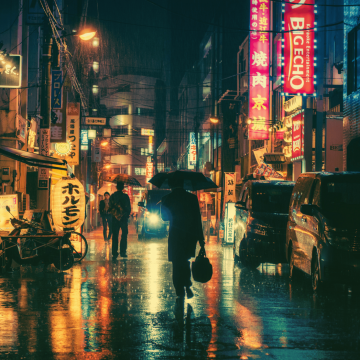
Japan’s casinos might not have poker rooms. An expert panel created to advise the Japanese Diet on the casino bill called for house-banked games of chance only.
Poker rooms, with their player-versus-player game rules, would not exist in any potential integrated resort-casinos. Such a decision would run counter to Japanese lawmakers’ desire to protect residents from predatory gambling.
News about a ban on brick-and-mortar poker rooms is the latest indication that the Japanese land-based casino industry will not be as robust as first expected. With so many restrictions on Japan’s population, top Las Vegas casinos companies will invest far less than they would under a more permissive gaming environment.
No Poker Rooms in the Japanese IR Bill?
Last December, Japan’s parliament passed an Integrated Resort Casino Bill (or “IR” Bill) to legalize and regulate integrated casino resorts for the first time. MGM Resorts and Las Vegas Sands each suggested they might invest as much as $10 billion the Japanese casino industry.
The IR bill left specific policies and regulations to the legislative sessions of 2017. Writing the new laws has allowed more conservative members of Shinzo Abe’s ruling coalition to include poison pills in the prospective IR bill. Now several casino games which include the most skill appear as if they might be excluded.
Expert Panel on Casino Laws
The Mainichi, a Tokyo newspaper, reported late last month that Shinzo Abe’s administration created a panel of legal and gaming experts to produce an outline of casino regulations. The panel called for poker to be excluded, because of the potential for “criminal offenses”.
According to the Mainichi, the experts wrote, “[B]ets on games customers play between themselves would be banned because it is difficult for casino operators to control such games and such betting could lead to criminal offenses.”
No Player-Versus-Player Games
Presumably, the panel believes player-versus-player games might lead to collusion. One can imagine that high stakes card players might launder money by having one player consistently lose to another gambler at the table. The panel fails to note that most poker tables have 8 to 10 poker players active at a time, so it would be hard for any one player to lose to any other single player at the table consistently. The entire table would need to be involved in the scam.
No Sports Betting in the Casino Bill?
Poker is not the only skill-based game which might not make the cut. Reports suggest that sports betting, another game which includes elements of skill, might be banned under the IR bill. If Japanese casinos do not contain sportsbooks, it would cost the operations hundreds of millions of dollars a year in revenues. If Japan’s sports betting industry generated revenues at the same clip as Las Vegas, then one would expect the banning of sports betting to cost the casinos $260 million a year.
Nothing is determined yet when it comes to specific casino regulations. The rumors about poker and sports gambling are the latest in a series of concerning stories about potential restrictions on the integrated casinos.
$100 Entry Fee for Japanese Residents
Several of those rumors suggest Japanese residents might face restrictions. Residents might have to pay a $100 entry fee, a rule designed to restrict gambling to high rollers who can afford to lose money. Other potential regulations might ban casino markers (credit), junket operators, and ATM machines on the casino floor. Even the gaming space might be so severely limited that casinos would be little more than slots-in-a-box gaming venues.
If such stories prove to be true, then American and Chinese casino companies are not going to invest the kind of money into casino development that Japanese lawmakers expect. Sheldon Adelson of Las Vegas Sands Corp said he would not invest $10 billion if the casino restrictions are significant. Every new regulation means lower projected revenues, so such a business model would not make sense.
Say Goodbye to a $25 Billion Casino Industry
Under those circumstances, the estimated $25 billion-a-year Japanese casino industry would be wildly inaccurate. While American casino companies would still want to invest in a restricted Japanese casino industry, their investment would be nothing like what Japanese lawmakers expect — or have promised.
Casinos Versus Pachinko Parlor Industry
One story suggests that the $100 entry fee might be a concession to Japan’s expansive pachinko parlor industry. Pachinko machines are a cross between a pinball machine and a slot machines. Players technically do not play for cash, though they can trade in pachinko balls for cash at nearby vendors.
Most pachinko players gamble for small stakes, though. Charging a stiff fee at the Japanese casinos means penny players and mid-stakes players would continue to frequent the pachinko parlors. If no such fees existed, many players might abandon the traditional form of gaming.
20 Year Old Age Restriction
One rule that seems certain is an age restriction at Japanese casinos. It appears that lawmakers will impose a 20-year old age limit on casino gamblers. Pachinko parlors have an 18-year old limit, so 18- and 19-year old gamblers would need to remain in pachinko parlors.
The lawmakers’ justification for the 20-year old law is to protect young adults from developing a gambling addiction. Political leaders argue the rule would protect gamblers at the most economically and psychologically vulnerable time of their adult lives.















